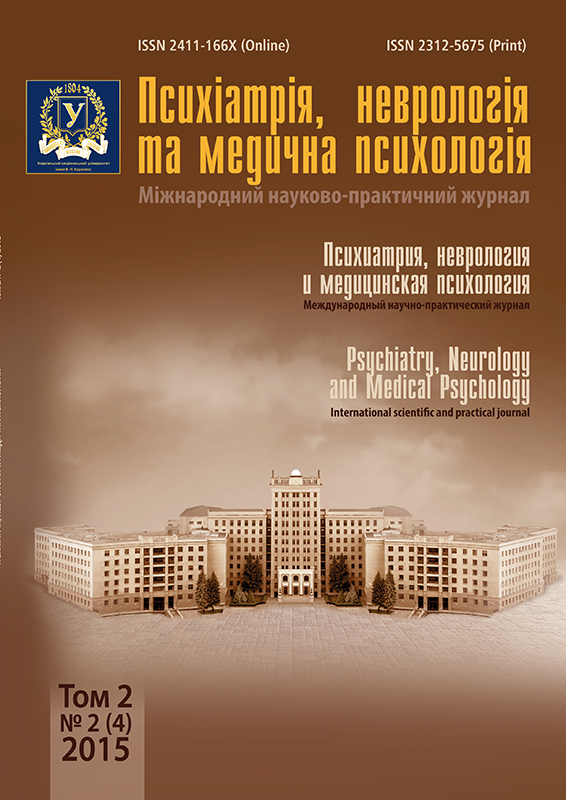The Effects Of Resilience Training On Display Of Post-Traumatic Symptoms
Abstract
On the basis of United Nations staff deployed in a highly volatile conflict zone there were 195 civilian and military personnel interviewed and surveyed with a modified and revised version of Impact of Event Scale -Revised (IES-R). The research was conducted with a purpose to assess the effectiveness of 6 hrs. Resilience Training (RT) conducted prior to deployment on the affected staff in decreasing and alleviating Acute Stress Disorder (ASD) and Post-Traumatic Stress Disorder (PTSD) common diagnostic criteria, namely avoidance, intrusion, and hyperarousal. Survey results showed that scoring on modified Impact of Event Scale-Revised for those who passed 6 hrs. RT without following RT handout instructions improved by 13 % compared to control group. Those who passed RT training and closely followed RT handout instructions for the whole duration of their deployment improved by 41 %. The length of deployment (or exposure time) is 7±4,5 months.
Downloads
References
Bryant R. A. Acute stress disorder as a predictor of posttraumatic stress disorder: a systematic review. J. Clin Psychiatry, 2010.
Kessler R. C., Sonnega A., Bromet E., Hughes M., Nelson C. B: Posttraumatic stress disorder in the National Comorbidity Survey. Arch Gen Psychiatry, 1995, no. 52, pp. 1048-1060.
Breslau N., Kessler R. C., Chilcoat H. D., Schultz L. R., Davis G. C., Andreski P. Trauma and posttraumatic stress disorder in the community: the 1996 Detroit Area Survey of Trauma. Arch Gen Psychiatry, 1998,no. 55, pp. 626-632.
Ursano R. J., Bell C., Eth S., Friedman M. Practice guideline for the treatment of Patients with Acute Stress Disorder and Posttraumatic Stress Disorder. American Psychiatric Association, 2010, no. 3.
Gidron Y., Gal R., Freedman S. A., Twiser I., Lauden A., Snir Y., Benjamin J. Translating research findings to PTSD prevention: Results of a randomized-controlled pilot study. Journal of Traumatic Stress, 2001, no. 14(4), pp. 773-780.
Bryant R. A., Harvey A. G., Dang S. T., Sackville T., Basten C. Treatment of Acute Stress Disorder: A comparison of cognitive behavioral therapy and supportive counseling. Journal of Consulting and Clinical Psychology, 1998, no. 66, pp. 862-866.
Bryant R. A., Sackville T., Dang S. T., Moulds M., Guthrie, R. Treating Acute Stress Disorder: An evaluation of cognitive behavior therapy and counseling techniques. American Journal of Psychiatry, 1999, no. 156, pp. 1780-1786.
Echeburua E., deCorral P., Sarasua B., Zubizarreta I. Treatment of acute Posttraumatic Stress Disorder in rape victims: an experimental study. Journal of Anxiety Disorders, 1996, no. 10, pp. 185-199.
Bryant R. A., Harvey A. G., Dang S., Sackville T. Assessing Acute Stress Disorder: Psychometric properties of a structured clinical interview. Psychological Assessment, 1998, no. 10, pp. 215-220.
Bryant R. A., Moulds M. L., Guthrie R. M., Nixon R. D. The additive benefit of hypnosis and cognitive-behavioral therapy in treating acute stress disorder. J Consult Clin Psychol, 2005, no. 73, pp. 334-340.
Bryant R. A., Moulds M. L., Nixon R. V. Cognitive behavior therapy of acute stress disorder: a four-year follow-up. Behav Res Ther., 2003, no. 41, pp. 489-494.
Bryant R. A., Mastrodomenico J., Felmingham K. L. et al. Treatment of acute stress disorder: a randomized controlled trial. Arch Gen Psychiatry, 2008, no. 65, pp. 659-667.
Bryant R. A., Moulds M., Guthrie R., Nixon R. D. Treating acute stress disorder following mild traumatic brain injury. Am J Psychiatry, 2003, no. 160, pp. 585-587.
Southwick S. M., Charney D. S. Resilience: The Science of Mastering Life’s Greatest Challenges. Cambridge University Press, 2012, pp. 4-24.
Robertson I., Cooper C. Well-being: Productivity and Happiness at Work. Palgrave Macmillan, 2011.
Copyright (c) 2016 D. N. Voloshyna, K. N. Yemets

This work is licensed under a Creative Commons Attribution 4.0 International License.

